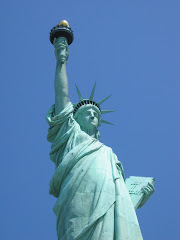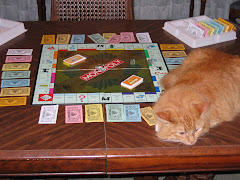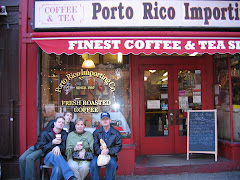This carol was first published in 1827, but even then
it was introduced as "an ancient carol, sung in the streets
of London." In fact, old London had municipal watchmen
who were licensed to perform certain tasks, including the
singing of Christmas carols. This was one of their songs.
In A Christmas Carol by Charles Dickens, Ebenezer
Scrooge hears this song sung joyously in the street and
tells the singer he'll hit him with a ruler unless he stops
singing. Of course that was not the intended response to
this carol. The point is that joy reigns on Christmas Day
because of God's great gift of His Son, Jesus Christ. We
can "rest merry" in the knowledge that Christ has paid
our penalty for going astray and has set us free from the
power of evil.
--Wm. J. Petersen & Randy Petersen
God Rest Ye Merry, Gentlemen
God rest ye merry, gentlemen,
Let nothing you dismay,
For Jesus Christ our Savior
Was born upon this day,
To save us all from Satan's power
When we were gone astray.
O tidings of comfort and joy, comfort and joy;
O tidings of comfort and joy!
In Bethlehem in Jewry
This blessed babe was born,
and laid within a manger
Upon this blessed morn:
The which His mother Mary
Did nothing take in scorn.
From God our heavenly Father
A blessed angel came,
And unto certain shepherds
Brought tidings of the same,
How that in Bethlehem was born
The Son of God by name.
The shepherds at those tidings
Rejoiced much in mind,
And left their flocks afeeding
In tempest, storm, and wind,
And went to Bethlehem straightway,
The blessed babe to find.
Now to the Lord sing praises,
All you within this place,
and with true love and brotherhood
Each other now embrace;
This holy tide of Christmas
All other doth deface.
--Traditional English Carol (18th Century)
Thursday, December 22, 2011
Wednesday, December 21, 2011
The Flame of Hope
The flame of hope is more than just a candle
Shining brightly in some darkened place;
It is the torch of confidence eternal
Burning within man's breast, quickening his pace.
And, ever as the years march up and onward,
The flame grows brighter with each passing day;
No tyrant of the soul, however forceful,
Can cleave its wall and mine that hope away.
The flame of hope held high is everlasting,
The waves of time may dash and cast their spray,
But the shining promise of yet another morrow
Dismisses any doubt about today.
Our Lady in the Harbor stands as proof then
That that great torch stretched to the sky above
Will burn forever. . . This great expectation
Is what the whole of life is made up of!
--Georgia B. Adams
Shining brightly in some darkened place;
It is the torch of confidence eternal
Burning within man's breast, quickening his pace.
And, ever as the years march up and onward,
The flame grows brighter with each passing day;
No tyrant of the soul, however forceful,
Can cleave its wall and mine that hope away.
The flame of hope held high is everlasting,
The waves of time may dash and cast their spray,
But the shining promise of yet another morrow
Dismisses any doubt about today.
Our Lady in the Harbor stands as proof then
That that great torch stretched to the sky above
Will burn forever. . . This great expectation
Is what the whole of life is made up of!
--Georgia B. Adams
Tuesday, December 20, 2011
Thou Didst Leave Thy Throne
Emily Elliott had a special concern for those who
were sick. She wrote many poems and hymn texts
especially for the infirm, publishing forty-eight of them
in a little book called Under the Pillow. She may have
been influenced by her aunt, Charlotte Elliott, who
wrote "Just As I Am". Charlotte was a prolific poet
and was sickly for much of her life.
This particular hymn was written for children, to
teach them about Jesus' birth. It has a simple construc-
tion--each of the first four stanzas presents a contrast
with the word but. Given the first two lines of each
stanza, you might expect the world to welcome Christ,
but no--it had no room for Him. The chorus is a natural
response to the predicament, something that even a child
could understand. Though the world had no room for the
Lord, we have room for Him in our hearts.
The last stanza provides a stirring conclusion. The
Lord, once rejected and displaced, will soon come in
victory--and we should all be waiting.
--Wm. J. & Randy Petersen
Thou Didst Leave Thy Throne
Thou didst leave Thy throne and Thy kingly
crown
When Thou camest to earth for me;
But in Bethlehem's home was there found no
room
For thy holy nativity.
O Come to my heart, Lord Jesus--
There is room in my heart for Thee!
Heaven's arches rang when the angels sang,
Proclaiming Thy royal decree;
But of lowly birth didst Thou come to earth,
And in great humility.
The foxes found rest, and the birds their nest
In the shade of the forest tree;
But Thy couch was the sod, O Thou Son of
God,
In the deserts of Galilee.
Thou camest, O Lord, with the living Word
That should set Thy people free;
But with mocking scorn and with crown of
thorn
They bore Thee to Calvary.
When the heav'ns shall ring and the angels
sing
At Thy coming to victory,
Let Thy voice call me home, saying, "Yet there
is room--
There is room at My side for thee."
My heart shall rejoice, Lord Jesus,
When thou comest and callest for me!
--Emily Elizabeth Steele Elliott (1836-1879)
were sick. She wrote many poems and hymn texts
especially for the infirm, publishing forty-eight of them
in a little book called Under the Pillow. She may have
been influenced by her aunt, Charlotte Elliott, who
wrote "Just As I Am". Charlotte was a prolific poet
and was sickly for much of her life.
This particular hymn was written for children, to
teach them about Jesus' birth. It has a simple construc-
tion--each of the first four stanzas presents a contrast
with the word but. Given the first two lines of each
stanza, you might expect the world to welcome Christ,
but no--it had no room for Him. The chorus is a natural
response to the predicament, something that even a child
could understand. Though the world had no room for the
Lord, we have room for Him in our hearts.
The last stanza provides a stirring conclusion. The
Lord, once rejected and displaced, will soon come in
victory--and we should all be waiting.
--Wm. J. & Randy Petersen
Thou Didst Leave Thy Throne
Thou didst leave Thy throne and Thy kingly
crown
When Thou camest to earth for me;
But in Bethlehem's home was there found no
room
For thy holy nativity.
O Come to my heart, Lord Jesus--
There is room in my heart for Thee!
Heaven's arches rang when the angels sang,
Proclaiming Thy royal decree;
But of lowly birth didst Thou come to earth,
And in great humility.
The foxes found rest, and the birds their nest
In the shade of the forest tree;
But Thy couch was the sod, O Thou Son of
God,
In the deserts of Galilee.
Thou camest, O Lord, with the living Word
That should set Thy people free;
But with mocking scorn and with crown of
thorn
They bore Thee to Calvary.
When the heav'ns shall ring and the angels
sing
At Thy coming to victory,
Let Thy voice call me home, saying, "Yet there
is room--
There is room at My side for thee."
My heart shall rejoice, Lord Jesus,
When thou comest and callest for me!
--Emily Elizabeth Steele Elliott (1836-1879)
Sunday, December 4, 2011
O, Come, O Come, Emmanuel
This hymn is ancient, not only in its text, but also in its
music. While the tune used today was not really finalized
until the 1800s, it is based on plainsong, which was used
in the church during medieval times. The lack of strict rhyth-
mic measures gives the tune a free-flowing style. You can
almost imagine the simple intervals echoing through a stone
cathedral.
The text developed without the chorus as a series of li-
turgical phrases used during Advent. Each stanza concen-
trates on a different biblical name for Christ, making this
hymn a rich source for Christian meditation. Jesus is Em-
manuel--"God with us"; Wisdom from on high; Desire of
nations; Lord of might; Rod of Jesse; Dayspring; and Key
of David. As we approach Christmas, let us take some
time to think about the nature of the Christ whose coming
we celebrate.
--William J. Petersen & Randy Petersen
The One Year Book of Hymns
O Come, O Come, Emmanuel
O come, O come, Emmanuel,
And ransom captive Israel,
That mourns in lonely exile here
Until the Son of God appear.
Rejoice! Rejoice! Emmanuel
Shall come to thee, O Israel!
O come, Thou Wisdom from on high,
And order all things, far and nigh;
To us the path of knowledge show,
And cause us in her ways to go.
O come, Desire of nations, bind
All peoples in one heart and mind;
Bid envy, strife, and quarrels cease;
Fill the whole world with heaven's peace.
O come, thou Dayspring, come and cheer
Our spirits by Thine advent here;
Disperse the gloomy clouds of night,
And death's dark shadows put to flight.
Latin Hymn (twelfth century)
Stanzas 1 and 4 translated by John Mason Neale
(1818-1866)
Stanzas 2 and 3 translated by Henry S. Coffin
(1877-1954)
music. While the tune used today was not really finalized
until the 1800s, it is based on plainsong, which was used
in the church during medieval times. The lack of strict rhyth-
mic measures gives the tune a free-flowing style. You can
almost imagine the simple intervals echoing through a stone
cathedral.
The text developed without the chorus as a series of li-
turgical phrases used during Advent. Each stanza concen-
trates on a different biblical name for Christ, making this
hymn a rich source for Christian meditation. Jesus is Em-
manuel--"God with us"; Wisdom from on high; Desire of
nations; Lord of might; Rod of Jesse; Dayspring; and Key
of David. As we approach Christmas, let us take some
time to think about the nature of the Christ whose coming
we celebrate.
--William J. Petersen & Randy Petersen
The One Year Book of Hymns
O Come, O Come, Emmanuel
O come, O come, Emmanuel,
And ransom captive Israel,
That mourns in lonely exile here
Until the Son of God appear.
Rejoice! Rejoice! Emmanuel
Shall come to thee, O Israel!
O come, Thou Wisdom from on high,
And order all things, far and nigh;
To us the path of knowledge show,
And cause us in her ways to go.
O come, Desire of nations, bind
All peoples in one heart and mind;
Bid envy, strife, and quarrels cease;
Fill the whole world with heaven's peace.
O come, thou Dayspring, come and cheer
Our spirits by Thine advent here;
Disperse the gloomy clouds of night,
And death's dark shadows put to flight.
Latin Hymn (twelfth century)
Stanzas 1 and 4 translated by John Mason Neale
(1818-1866)
Stanzas 2 and 3 translated by Henry S. Coffin
(1877-1954)
Friday, December 2, 2011
Come, Thou Long-Expected Jesus
Prolific hymnwriter Charles Wesley penned eighteen Christmas
songs, but he was never happy with simply painting the picture of the
manger scene. In this hymn he begins by alluding to scriptural proph-
ecies of Christ. Moving on to personal application, he continues:
Christ is not only the "desire of every nation"; He is the "joy of every
longing heart." He is not only the child born with the "government...
on his shoulders" (Isaiah 9:6); He is "born to reign in us forever."
Such personal application was a hallmark of the Wesleys' ministry.
Charles and his brother John challenged the staid Anglican traditions
of their time. The church of their day had great scholarship; its theol-
ogy was orthodox. Christians sang hymns straight from Scripture.
But the Wesleys seemed to ask, "Does this mean anything to you?
Is the biblical story about long-ago events or about what is going on
in your life?" They urged people to meet Christ personally and to
include Him in every part of their lives--even their hymn singing.
Come, Thou Long-Expected Jesus
Come, Thou long-expected Jesus,
Born to set Thy people free;
From our fears and sins release us;
Let us find our rest in Thee.
Israel's strength and consolation,
Hope of all the earth Thou art;
Dear desire of every nation,
Joy of every longing heart.
Born Thy people to deliver,
Born a child and yet a King,
Born to reign in us forever,
Now Thy gracious kingdom bring.
By Thine own eternal Spirit
Rule in all our hearts alone;
By Thine all sufficient merit,
Raise us to Thy glorious throne.
--Charles Wesley (1707-1788)
The One Year Book of Hymns,
Robert K. Brown & Mark R. Norton, Eds.
Wm. J. Petersen & Randy Petersen, Devotion
songs, but he was never happy with simply painting the picture of the
manger scene. In this hymn he begins by alluding to scriptural proph-
ecies of Christ. Moving on to personal application, he continues:
Christ is not only the "desire of every nation"; He is the "joy of every
longing heart." He is not only the child born with the "government...
on his shoulders" (Isaiah 9:6); He is "born to reign in us forever."
Such personal application was a hallmark of the Wesleys' ministry.
Charles and his brother John challenged the staid Anglican traditions
of their time. The church of their day had great scholarship; its theol-
ogy was orthodox. Christians sang hymns straight from Scripture.
But the Wesleys seemed to ask, "Does this mean anything to you?
Is the biblical story about long-ago events or about what is going on
in your life?" They urged people to meet Christ personally and to
include Him in every part of their lives--even their hymn singing.
Come, Thou Long-Expected Jesus
Come, Thou long-expected Jesus,
Born to set Thy people free;
From our fears and sins release us;
Let us find our rest in Thee.
Israel's strength and consolation,
Hope of all the earth Thou art;
Dear desire of every nation,
Joy of every longing heart.
Born Thy people to deliver,
Born a child and yet a King,
Born to reign in us forever,
Now Thy gracious kingdom bring.
By Thine own eternal Spirit
Rule in all our hearts alone;
By Thine all sufficient merit,
Raise us to Thy glorious throne.
--Charles Wesley (1707-1788)
The One Year Book of Hymns,
Robert K. Brown & Mark R. Norton, Eds.
Wm. J. Petersen & Randy Petersen, Devotion
Subscribe to:
Comments (Atom)













